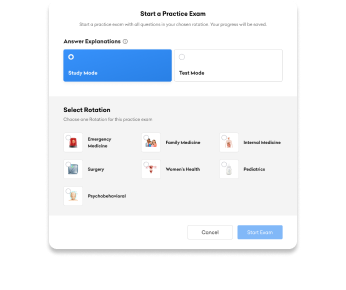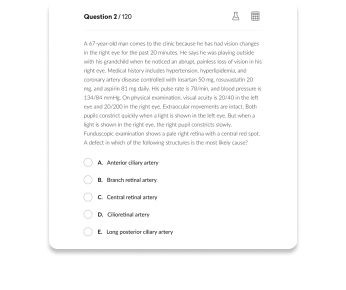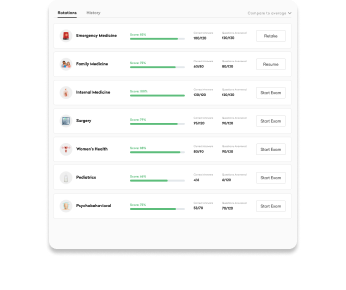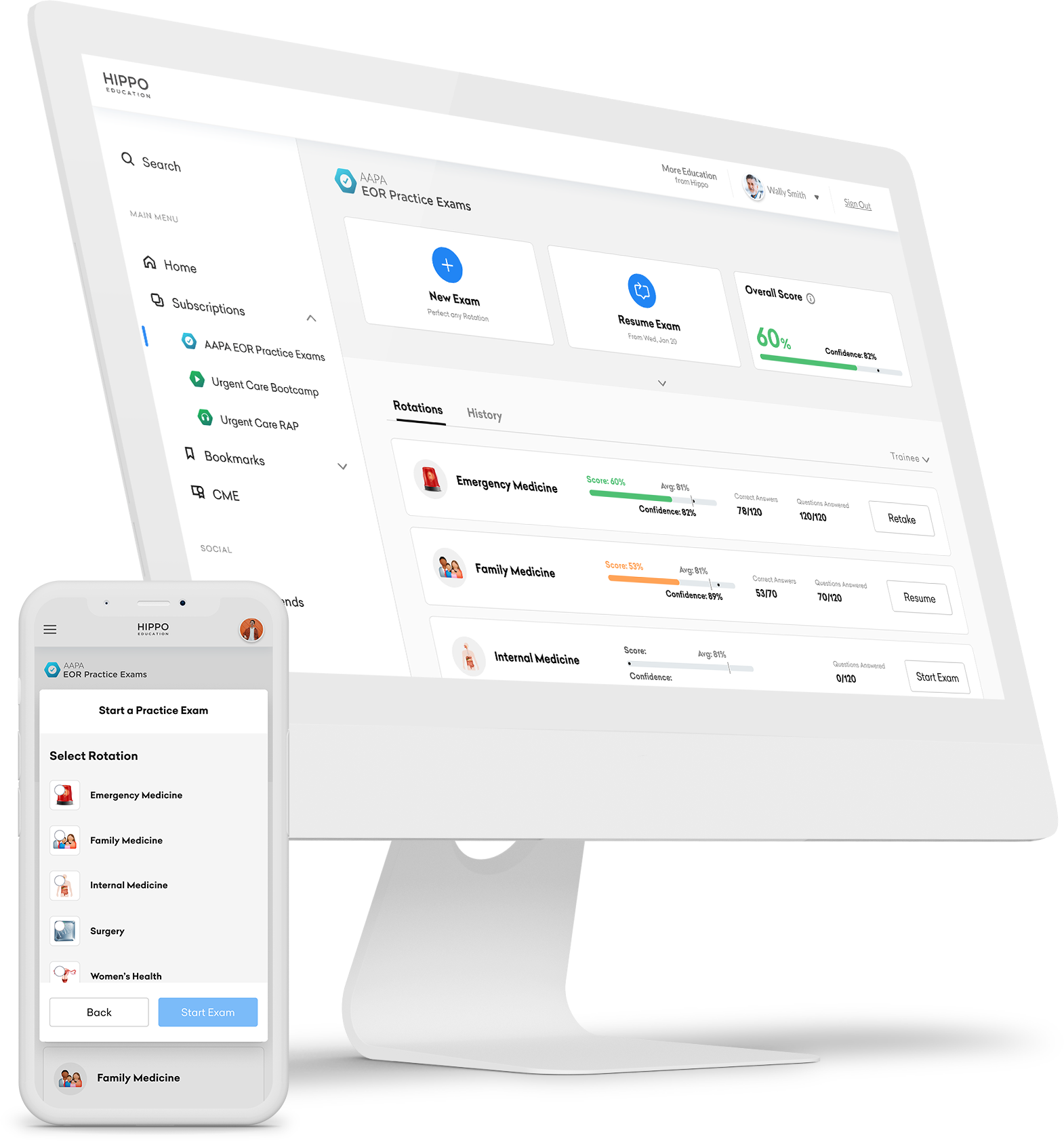Master Your Rotations
Rotations are quick. Your studying needs to be efficient and effective. Use your EOR Practice Exams as a supplement to our Rotation Crash Course to exceed your studying needs while busy in rotations.

Ace Your Exam
Exams can be stressful. Be as prepared for the real exam as possible by taking an endless amount of practice exams compiled from 800 questions written by experienced clinicians, for future clinicians.

Excel in Your Practice
You learn critical information in your clinical rotations that you’ll use every day in your practice. Master the information now for long-term success, both for your practice and for your patients.

EOR Practice Exams
Regular Price
$240
AAPA Members
$240
→
FREE
(with an active AAPA Membership)
What's included?
Seven 120-question tests
Covers all seven rotations: Emergency Medicine Family Medicine, Internal Medicine, Surgery, Women's Health, Pediatrics, and Psychobehavioral
PAEA informed to help you study smarter
